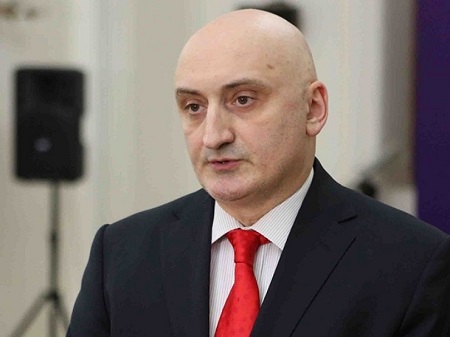30th round of Geneva Talks sees no tangible outcomes

The 30th round of Geneva Talks, an international format of meetings addressing Georgian-Russian relations, has concluded today without definite results.
Russia’s Deputy Foreign Minister Gregory Karasin left the talks without commenting, while the Georgian side stated Russia wanted to push forward NATO-related issues in the course of the talks.
According to Georgia's Deputy Foreign Minister David Dondua, who led the Georgian delegation to Geneva, the main topic of the talks was the treaty between de-facto Abkhazia and Russia on ‘Alliance and Strategic Partnership’ and fulfilment of Russia’s obligations of the ceasefire agreement, made after the August war in 2008.
"We condemned the treaty and stated that in the case if Russia decides to sign the same document with de-facto South Ossetia, the step will be followed by strong assessments of the international community and will be taken as a step taken to the regions’ annexation,” Dondua said.
"When it comes to ceasefire, Russia should take the responsibility as Georgia did.”
"Russian side has tried to discuss Georgian-NATO relations within the format. However, we stressed that the issue did not fit the format of the Geneva Talks,” he said.
Meanwhile, before the latest round of the Geneva Talks, Karasin admitted that the treaty Russia had signed with Abkhazia was "just strengthening” of the collaboration memorandum signed with Abkhazia after the August war in 2008. While speaking about the treaty, Karasin touched upon Georgia’s foreign course.
"We made our relations deeper with Abkhazia through the treaty. Georgia has also launched deepening its relations with NATO and other actors like the United States of America (US),” Karasin said.
United States representatives at the talks, Deputy Assistant Secretary of State in the Bureau of European and Eurasian Affairs Eric Rubin said the US was concerned with the Russia-breakaway Abkhazia treaty.
"We have expressed our position clearly during the talks,” he said and added that the treaty might affect the Geneva format and peaceful negotiations between the sides.
Aside from political issues, humanitarian issues were also discussed during the discussion.
Georgia’s Deputy Minister for Reconciliation and Civil Equality Ketevan Tsikhelashvili said Georgia did not get clear responses from the de-facto representatives on a number of issues, including free movement of Georgian refugees in the occupied regions, getting education for Georgians living in the regions in their mother- tongue and the reintegration of refugees.
"However, we were promised by co-chairs of the talks that they will go on working on the issues,” Tsikhelashvili said.
The Geneva Talks international format was launched after the August war in 2008. The talks are co-chaired by representatives from the EU, UN and OSCE and are held in two working groups – one addressing security issues on the ground, among them international security arrangements and the non-use of force, and another one addressing humanitarian issues.
 Tweet
Tweet  Share
Share